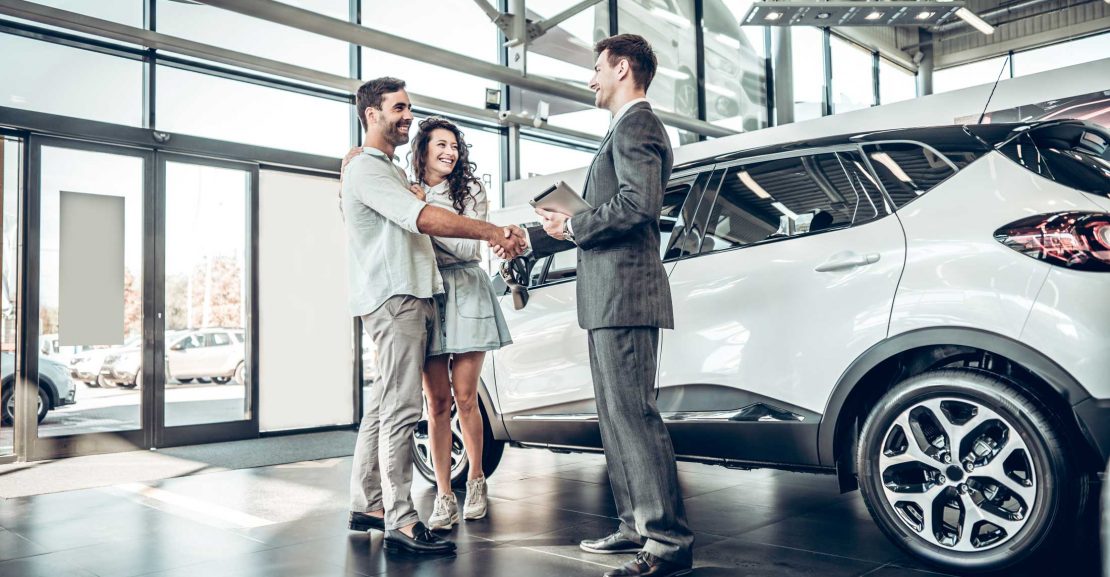Buying a new vehicle is a big decision. Here’s some advice from a local expert on the best time to buy a car in St. Louis, MO.
The best time to buy a car often boils down to “when you need one.” Not everyone has the ability to control when exactly the need will arise. Like it or not, timing can have a big impact on your car buying experience. Whether you are shopping on your own schedule or someone else’s, the timing of your purchase can affect everything from the options you’ll have available to the quality of service you will receive, and of course the price you will end up paying for your new ride.
Ask anyone, “When is the best time to buy a car?” and you’ll get answers ranging from the end of the month to “wait until the new models come out.”
There are many different theories on the best time to buy a car. Believe it or not, there is a grain of truth to a lot of them.
No matter what your situation is, there are steps you can take to set yourself up for greater success. Here are some tips from the local automotive experts at Master Auto Repair of Webster Groves on the best time to buy a car in St. Louis
Fall
Autumn brings around the end of the “model year” for many vehicles. During this time of transition, dealers often look to clear out old inventory and make way for the newest vehicles. Prices drop on older models, making this a great time to get into a newer vehicle. Some of the best deals around can be found in the fall.
Winter
If any vehicle truly has an off-season, it’s a sporty convertible during the long Midwest winter. Have you ever driven a rear-wheel drive car up I-44 in a St. Louis snow storm? It’s an experience. But because demand is down for lighter, compact, and sportier vehicles in winter, prices tend to drop, which could make it the perfect time to finally buy your dream car. Just maybe wait for a clear day to take it on the road.
Spring
As tax refund checks come rolling in, you might find yourself with cash on hand for a down payment on a new ride. After a long winter of filling up a gas-guzzling truck or SUV, something a little lighter and more efficient can look very appealing in the springtime. On the flip side, if you found yourself slipping and sliding through those late winter ice storms, you might be ready for something that feels safer on the road. These are some of the reasons why auto sales are traditionally high in the spring. But is it actually a good time to buy? Spring months are actually pretty light on deals, so if pricing is your priority, it might be better to wait a bit.
Summer
The sun is out, you’re living your most active life, and you may feel drawn to a vehicle that fits your peak lifestyle. Or maybe you’re planning a vacation road trip and feeling the urge to upgrade your storage capacity and passenger features. As gas prices traditionally rise during summer vacation season, many drivers feel drawn to more fuel-efficient or eco-friendly cars in the summertime. If pricing is your main priority however, it could be better to wait for better deals later in the year. If you can’t wait, keep in mind that car sales tend to slow down in the summer, so you might have some leverage with motivated sales reps who are missing those high springtime sales bonuses.
End of the Month
Great car deals can often be found at the end of the month when dealerships and sales reps are striving to reach their monthly targets and earn their bonuses. This makes the end of the month traditionally a great time for car buying, but possibly less ideal for car shopping. Be wary of getting rushed through the process or you might end up paying a great price for a vehicle that doesn’t meet all your needs.
Beginning of the Month
Many people know there are good deals at the end of the month and are likely to flock to the car lot on those days, leaving the beginning of the month wide open. You’re likely to encounter less traffic and get more personal attention from your sales rep at the beginning of the month than the end. If you’re not sure what you want, going earlier in the month can work to your advantage.
Lori’s Pro Tip:
End of the Year
The last week of December is especially good for car buyers due to the double-threat of the end of the month and the end of the year.
Beginning of the Year
In the state of Missouri, personal property taxes are assessed based on what you own as of January 1st of any given tax year. Because of this, many St. Louisans choose to wait until the new year comes around to buy their next vehicle.
Model Year Rollover
In the automotive world, the year ends twice. There’s the usual December 31st ending that we all experience. But the auto industry also has a Model Year End. This is when car makers release the newest and greatest version of their vehicles. When the new model comes out, older models become less valuable and prices go down.
Weekdays vs Weekends
Since foot traffic is slower during the work week, weekday car shopping can lead to slightly more discounts than you will find on the weekend. This small, but important timing choice can be big for buyers in urgent need of a new car. If you can swing it, try to get to the dealership on a weekday. The earlier in the week, the better.
In the Morning
In car buying, the early bird often gets the worm. The “worm” in this case is a motivated sales rep who is eager to close the first deal of the day and earn a bonus. As a buyer it also means getting first dibs on the day’s inventory. If you’re looking for something specific, getting out early is a good idea.
In fact, starting your car buying journey in the morning is always a good idea. Even if you luck out and find the perfect ride right away, you’ll have a long day ahead of you. Starting early will give you time to do it all right and knock out as many tasks as possible in one day, helping you get out of the waiting room, onto the road, and on with your life faster.
Holidays
The winter holidays often mean empty dealerships and money set aside for gifts. Dealers scramble to get rid of the prior year’s inventory and sales reps are running out of time to earn their year-end bonuses. The odds are in your favor around Christmas and New Year’s Eve. But what about those other holiday car sales throughout the year? According to Popular Mechanics, the best and worst holidays for buying a used car are:
Best
- Black Friday – 33.1% more deals
- Veteran’s Day – 32.5% more deals
- Thanksgiving – 30.6% more deals
- Columbus Day/Indigenous People’s Day – 30.5% more deals
- Martin Luther King Day – 29.4% more deals
- Christmas Eve – 28.7% more deals
- Christmas Day – 21.4% more deals
- New Year’s Eve – 21.3% more deals
Worst
- 4th of July – 28.0% fewer deals
- Mother’s Day – 27.5% fewer deals
- Easter – 22.2% fewer deals
- Good Friday – 21.6% fewer deals
- Memorial Day – 18.3% fewer deals
- Father’s Day – 18.3% fewer deals
During a Pandemic
During the COVID-19 pandemic, used car prices have been soaring. Because of delays in new car manufacturing, consumer demand for used cars has increased, driving prices way up. While this isn’t great news for people in the market for an affordable used car right now, it is excellent news for those with a vehicle to sell or trade in. In fact, some people are breaking even or turning a profit right now by selling vehicles they purchased in the last couple of years. It’s a rare thing for a vehicle to appreciate in value.
Lori’s Pro Tip for Maximizing Your Trade-In Value:
Do You Really Need a New Car?
Buying a new car, even a previously-owned one, is a big commitment. It’s important to make absolutely certain that buying a car is the right move for you. There are very few things that can go wrong with a vehicle that cost anywhere near as much as a new (even used) car. Don’t just total up the damage and repairs. Also consider the value of what isn’t wrong with your vehicle. Have a frank and honest discussion with your mechanic about this.
A good mechanic will consider not just your vehicle, but your entire situation as a driver and give you the kind of advice you could expect from a friend or family member. If a new vehicle is really what you want and need, they can help you narrow down your options so you go to the dealer knowing what to look for. They can also do a pre-purchase inspection to make sure you’re buying a quality vehicle that isn’t going to break soon after you buy it.
If you don’t trust your mechanic this way, it might be time to find someone you can count on.

